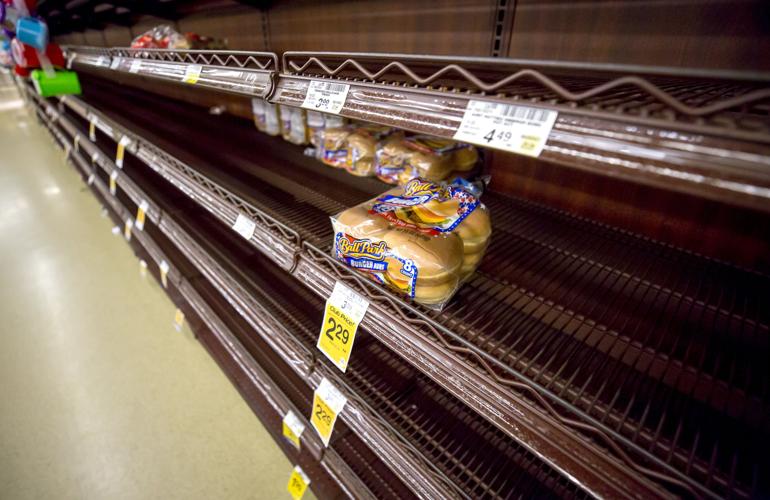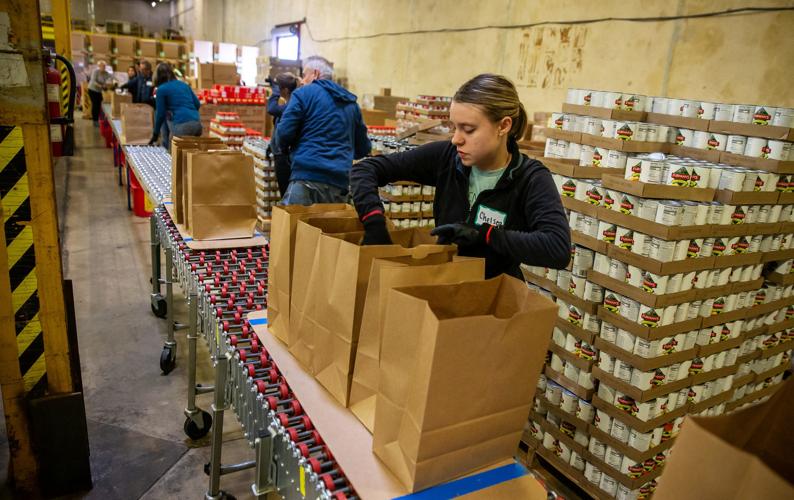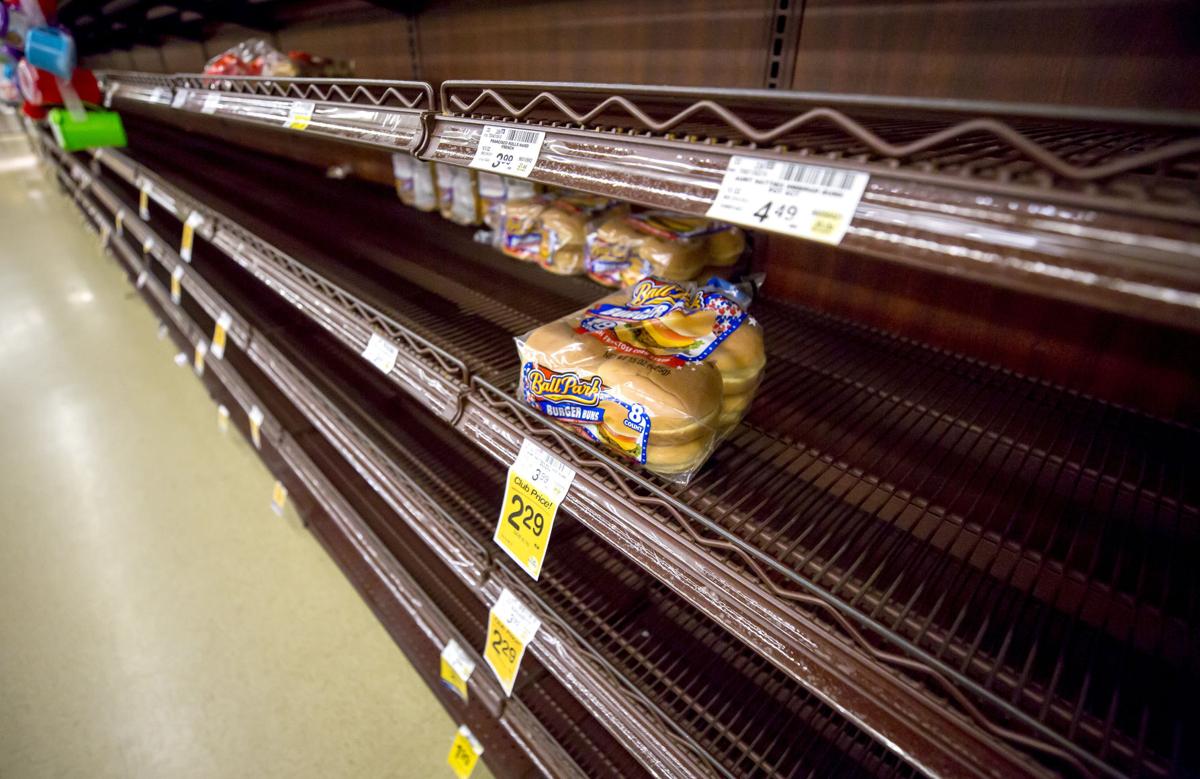If you or someone you know has lost a job or been financially impacted by coronavirus, there are many local organizations staffed by actual people eager to help Tucsonans connect with programs and resources that can help provide basic needs during this time.
The Pima County Community Action Agency works year-round to alleviate poverty and provide help in areas that include rent and mortgage assistance, help with utility bills and repairs, and food and nutrition. Manira Cervantes, the agency's program manager, says since the pandemic began the agency has seen a surge in calls, particularly from people who have never had to seek assistance before and are not sure how to navigate the system.
"The biggest (needs), or top three, really, are housing, utility assistance and food," she says. "And this was pre-COVID... However the same issues continue, and even moreso now."
To address the surge in calls and serve more people, the Community Action Agency and other county departments have set up hotlines specifically to provide resources and support related to COVID-19.
Below are three ways to get assistance with applications for state and federal programs and be connected to other services that can help with financial support during the pandemic. The Arizona Daily Star also has a resource guide with many local resources helping with everything from finding a cloth mask and getting groceries to mental health support.
For help with rent or utilities
In early April, the state announced measures to delay eviction for renters impacted by COVID-19 and to help provide financial assistance to use toward monthly rent for qualifying households through the COVID-19 Rental Eviction Assistance Program.
The Rental Eviction Assistance program is funded by the Arizona Department of Housing, and resources are limited. Applications for the program are being processed on a first-come first-serve basis and can be filed online at www.azhousing.gov.
The funding is "strictly for households that were impacted directly by COVID-19, so whether it was job loss, decrease in hours, school closures, having to self-quarantine or having health and safety issues themselves or within their household," says Manira Cervantes, program manager of the Community Action Agency, which is processing applications for the program. There are income requirements as well.
The Pima County Community Action Agency received so many calls from people with questions about the program or who needed help filling out the application that they created a dedicated hotline to help applicants with the process including gathering documentation, checking on the status of an application, providing forms that need to be completed and connecting applicants with other social services in both English and Spanish, says Cervantes. The local hotline number is 520-724-2505.
There is also a statewide hotline that can help with COVID-19 eviction prevention in both English and Spanish for people who do not have internet access. That can be reached by calling 211.
Staff from the agency, the Pima County Housing Center, the Pima County Library and Las Artes are helping answer the Community Action Agency hotline and processing applications for the rental assistance program.
Cervantes says they are receiving lots of calls from people who have never had to seek assistance from social service programs, and the team is there to help explain the process and the program.
"It's just definitely educating them and helping them understand what's required, and the importance of gathering documentation," she says. "So for instance, a lot of times people don't have their IDs, social security cards, birth certificates. For the most part, those are always going to be requested and you know at a time when you're under stress, you may not know where that is."
She says the team has received positive feedback from applicants about the new hotline, adding that people are reassured that they can talk to an actual person who can check on their applications, see if any paperwork is missing and advise on next steps.
"I really want to acknowledge our community as far as knowing that we're in this together. I think that's critical," she says. "We want them to know we're here for them, we hear them, and we're doing our best. All staff, all hands on deck, even other departments are being trained in order to help us get through these applications."
Cervantes says as of early last week more than 4,000 applications had been received for the program, and staffers are working to process those as quickly as possible. She said many of those applications where not properly submitted so staff is working to reach out to applicants to make sure they complete their application so it can be processed.
She says a critical thing to do if you are unable to pay your rent or other bills and are awaiting assistance is to communicate with your landlord or utility companies to share your circumstances.
"It's key that they do notify, especially the landlord, to avoid eviction because evictions are still occurring, " Cervantes says. "If tenants are not reaching out to the landlord to let them know, 'Hey, I was impacted by COVID because of this reason or whatever it may be, they can proceed with the eviction. So it's crucial. We do recommend that they put something in writing."
A template letter that can be filled out and shared with your landlord if you have been impacted by COVID-19 can be found here.
The Community Action Agency can also provide help with utility assistance, whether help is needed related to COVID-19 or not. Staff can help with that application process if you call 520-724-2667. The agency can also assist with rent and mortgage assistance for reasons unrelated to the pandemic at that number, too.
The county put together a comprehensive flyer titled "What Tenants Need to Know During COVID-19" that explains more about what renters should do and resources available to them.
For help applying for SNAP benefits

When the Community Food Bank of Southern Arizona put out a call for volunteers to meet increased demand during the coronavirus pandemic late last month, Tucsonans stepped up.
The Community Food Bank of Southern Arizona and several other organizations, restaurants and community groups are offering free meals and emergency food boxes at many locations throughout town. We've compiled some of those resources here and here.
But for more long-term assistance, you might consider seeing if you qualify for the federal Supplemental Nutrition Assistance Program (SNAP). SNAP benefits, sometimes referred to as food stamps, can be used at grocery stores and farmer's markets to purchase food using an electronic benefits card. Eligibility for the program is determined by factors including income and household size.
Applying for SNAP can be done online, by phone or in person at a Department of Economic Security office if absolutely necessary for those who do not have phone or internet access. The application for the program is on the state's Health-e-Arizona Plus website, which also has resources for applying for AHCCCS, the state's Medicaid agency, and cash assistance. Or you can call 855-432-7587. DES can answer questions about the application process and help provide assistance filling it out over the phone, but there are also other agencies known as community assistors who can also provide these services.
The Community Food Bank is one of the agencies that offers help applying for both SNAP and AHCCCS and staff can answer questions in English and Spanish and assist with gathering documents and filling out the application, says Chris Mazarella who manages the Gabrielle Giffords Resource Center at the food bank. If you need help, call 520-882-3314, leave a message and a staff member will return your call.
"We provide assistance with, and connection to, various services within the community," Mazarella said via email. "We take a 'whole person' approach, so when we assist someone, we do our best to address as many areas of life as we can."
Typically, the SNAP program requires the application and an interview with a DES staff member to determine eligibility, but the interview requirement has been waived in response to the pandemic unless additional information is needed from the applicant, said Brett Bezio, a DES spokesperson, via email.
For help finding employment

Pima County One-Stop Career Center set up a dedicated hotline to assist people who have lost their jobs due to COVID-19.
The Dislocated Worker Hotline, which can be reached by calling 520-724-5735, not only helps with job-related assistance like applying for unemployment insurance or learning about job opportunities, but staffers can also help connect people to other social services.
"It's resources, it’s food, it’s rental assistance, it’s utility assistance,” Michael Gates, manager of the Dislocated Worker Program, said in a news release. “And it’s jobs, and it’s training and support services.”
The hotline is answered Monday through Friday from 8 a.m. to 5 p.m. and staff can answer questions in English and Spanish.
The One-Stop Center is also regularly posting information on job openings in Pima County. That list can be found here.
For youth between the ages of 16-24 seeking employment, the county's youth one-stop center is offering resume and application help and scheduling appointments to use computers and internet for homework and filling out applications online. Call 520-724-9649 or email Youth.Center@pima.gov to make an appointment or learn about the center's services.







